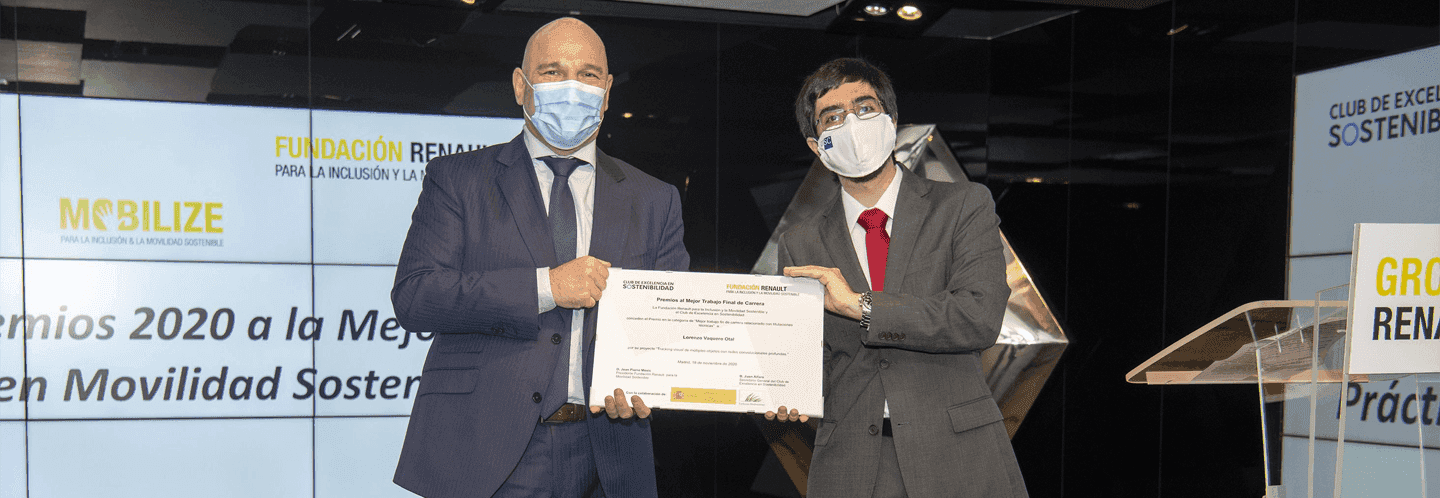
The researcher from CiTIUS Lorenzo Vaquero receives the highest state award in mobility and accessibility
The Renault Foundation and the 'Excellence in Sustainability Club' recognize the pre-doctoral researcher from the Singular Research Center in Intelligent Technologies at the University of Santiago (CiTIUS – USC) with the award for the Best STEM Final Degree Project.
The CiTIUS researcher Lorenzo Vaquero received this Wednesday in Madrid the most relevant award at the national level in the field of mobility and accessibility in Spain, an award granted by the Renault Foundation for Inclusion and Sustainable Mobility, in collaboration with the Excellence Club in Sustainability and with the support of the Biodiversity Foundation of the Ministry for Ecological Transition and the Demographic Challenge.
The scientist, who is currently developing his doctoral thesis at CiTIUS (Singular Research Center in Intelligent Technologies of the University of Santiago), expressed great satisfaction upon being selected as the winner of the ‘_III Awards for the Best STEM Final Degree Project_’ for his Master’s Thesis (TFM): «Being recognized for your work is always a great joy, but in this case, the joy is double, because it is not something that is concluded with the TFM: this line of research is part of a project with a lot of future prospects,» says Lorenzo Vaquero.
The VIII Edition of the Awards for the Best Practice in Sustainable and Accessible Mobility thus recognized the most notable initiatives being undertaken by companies, entrepreneurs, public administrations, and university students to raise awareness in civil society about the importance of sustainable mobility.
An Innovative Approach
The award granted to Lorenzo Vaquero recognizes a scientific work in which the researchers at CiTIUS managed to develop a new tool for visual tracking of objects, an area of special interest in many applications (such as autonomous vehicles or video surveillance cameras). However, while these fields demand systems capable of tracking multiple objects in real time, until now, much of the research in computer vision has focused on tracking a single element.
The award-winning work delves into this issue, standing out for its innovative nature: «The work itself is quite novel, because it is the first arbirtary multi-object tracker based on Deep Learning, something that has not been done until now,» states Vaquero. «Our approach proposes the global extraction of features from each frame of the image using a convolutional neural network, followed by cropping the different search areas of the objects,» he explains.
The proposed system has been evaluated on different datasets, reporting highly competitive precision and robustness rates. Furthermore, it achieves speeds superior to any other multi-object tracker based on Deep Learning.
Regarding his relationship with the award, the predoctoral researcher highlights that «our tracking tool is capable of functioning in real time, which means, for example, that it is suitable for implementation in autonomous vehicles.» He adds: «The new system also works with multiple objects, making it suitable for rich and varied environments, where a large number of objects of interest are located; and, on the other hand, it is arbitrary, or in other words: it supports any type of category or object.»